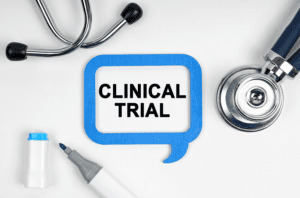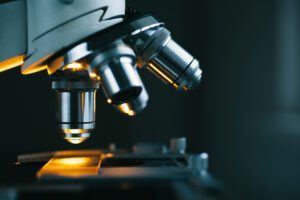Stomach Cancer
What is stomach cancer?
Stomach cancer, also called gastric cancer, is a disease in which cancerous cells form in the lining of the stomach. The stomach digests the food you eat, and is located in the upper abdomen. The wall of the stomach consists of three layers of tissue: the mucosal (inner) layer, the muscularis (middle) layer, and the serosal (outer) layer. Stomach cancer starts in the cells lining the inner layer and spreads outward as it grows. Stomach cancer is more likely to occur in older people. Two-thirds of the people who have it are over the age of 65. It also affects more men than women. It is more prominent in less developed countries, but is considered rare in the United States.What are the types of stomach cancer?
- Adenocarcinoma: Most common type of stomach cancer, beginning in the cells lining the stomach that make and release mucus. Almost all incidences of stomach cancer are these.
- Lymphoma: Cancers of the immune system tissue that are at times found in the stomach wall. Treatment depends on the type of lymphoma.
- Stromal tumors: Rare type. They begin in the supporting connective tissue of the stomach, and are treated differently from the majority of stomach cancer cases.
- Carcinoid tumor: Rare type. These tumors start in stomach cells that make hormones.
- Very rare types that can start in the stomach: Squamous cell carcinoma, small cell carcinoma, leiomyosarcoma.
What are the symptoms of stomach cancer?
Symptoms usually do not appear in the early stages of stomach cancer, which is why it can take a while for it to be diagnosed. They include:- Stomach pain
- Chronic and severe indigestion
- Feeling bloated after eating
- Feeling full after eating small portions
- Severe, chronic heartburn
- Persistent nausea and/or vomiting
- Unintentional weight loss
- Fatigue
- Blood in stool
- Yellowing of the skin and eyes
- Trouble swallowing
What causes stomach cancer?
Normal, healthy cells grow at a steady rate, and die at a set time. However, sometimes healthy cells develop abnormalities; they grow and multiply at an out of control rate, and take much longer to die. When this happens to cells in the stomach, they accumulate into a tumor there. Given time, the tumor can grow to invade other body parts. While there are many risk factors for stomach cancer, researchers are not exactly sure how these factors cause cells in the stomach lining to mutate. A common cause of stomach cancer is infection with the bacteria called H. pylori. Other risk factors for stomach cancer include: having gastrointestinal reflux disease (GERD), obesity, smoking, old age, family history of stomach cancer, and eating a diet high in salted, smoked foods but low in fruits and vegetables.How is stomach cancer diagnosed?
Stomach cancer is diagnosed using the following procedures:- Physical exam
- Records of medical history
- Upper endoscopy
- CT scan
- Barium swallow
- Biopsy
What are the stages of stomach cancer?
Doctors use the information obtained during diagnosis to assign a patient’s cancer a stage. Stomach cancer stages are:- Stage I: Tumor is limited to the inner layer of the stomach wall. Cancer cells may have spread to some nearby lymph nodes.
- Stage II: Cancer has spread into deeper muscle layers of the stomach wall. Cancer may have also moved to more lymph nodes.
- Stage III: Cancer has moved through all stomach layers and may have spread to nearby body parts or to more lymph nodes.
- Stage IV: Cancer has spread to distant body parts.
What are the treatments for stomach cancer?
Treatment for stomach cancer is dependent on the stage of the cancer, where it is in the body, the patient’s overall health, and the patient’s preferences. Treatment options include:- Chemotherapy
- Radiation therapy
- Surgery
- Targeted drugs
- Supportive care to ease symptoms
Where can I find out more about stomach cancer?
Stomach Cancer Articles


Who Can Help When You Have a Stomach Cancer Diagnosis? People Who Have Been There Before You!
Kathy Devanny
September 30, 2025
Read More »

New Partnership Aims to Develop mRNA and CAR-T Vaccine for Cancer
James Moore
November 9, 2023
Read More »


Pembrolizumab Combo Fails to Reach Endpoint in Gastroesophageal Junction Cancer Trial
James Moore
July 20, 2023
Read More »


Researchers Identify Precursors to Esophageal and Gastric Cancer
Jessica Lynn
November 14, 2022
Read More »

Study of the Week: Early GI Cancer Screening is Recommended for Primary Immunodeficiency Patients
James Moore
March 21, 2022
Read More »




